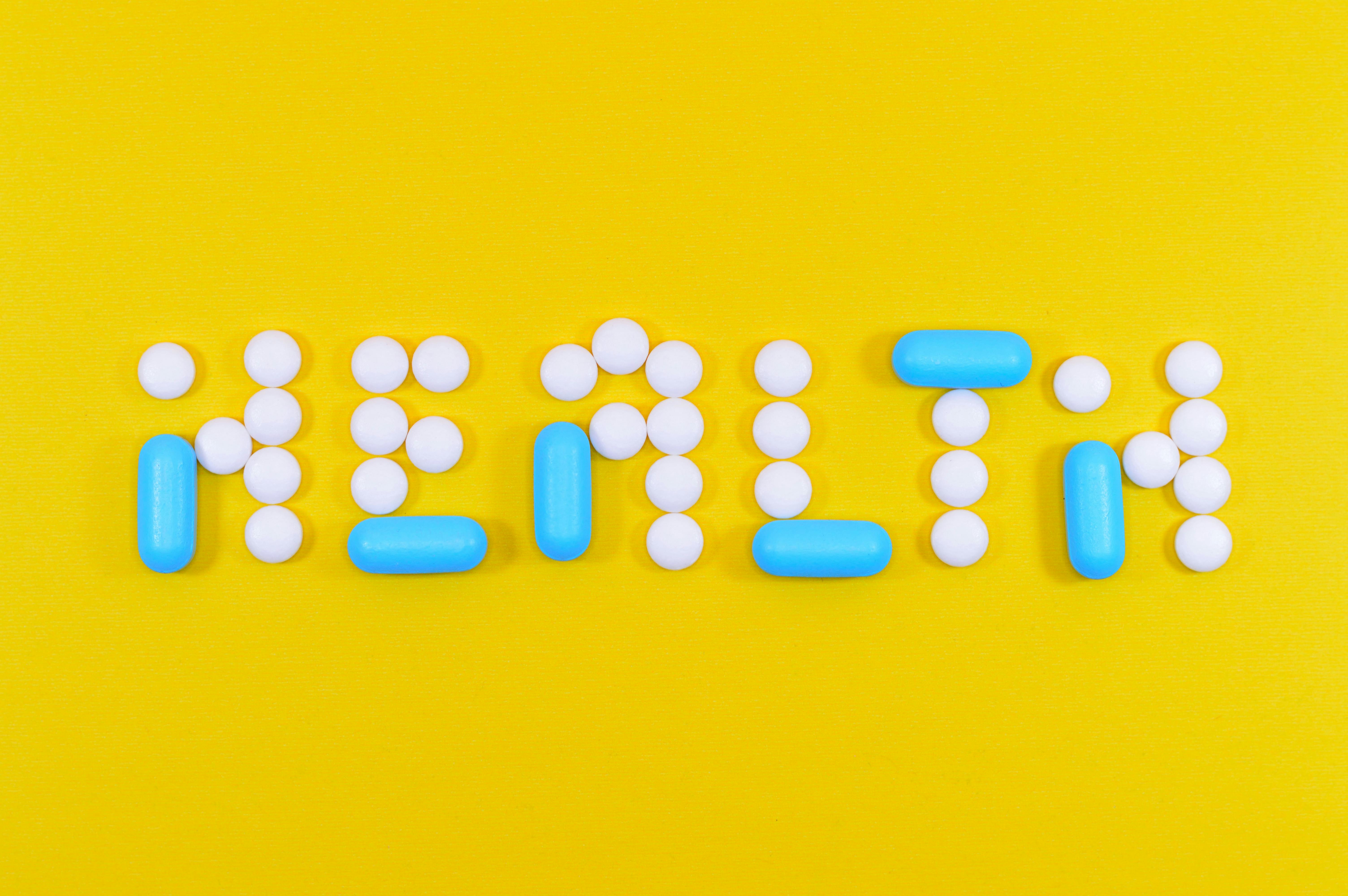Learn how testosterone impacts your health. From its definition and functions to symptoms of imbalance and potential treatments, this guide has you covered.
Testosterone: an essential hormone that plays a crucial role in your overall health and well-being. This article aims to provide you with a comprehensive understanding of testosterone and its impact on various aspects of your health. From its definition and functions to the symptoms of testosterone imbalance and potential treatments, delve into the world of this hormone as we explore its effects on your body, mind, and overall quality of life. Whether you’re seeking to optimize your testosterone levels or simply curious about its significance, this article is your guide to comprehending testosterone and its vital role in your health.
What is Testosterone?
Testosterone is a hormone that is primarily found in males, although it is also present in lower levels in females. It is produced in the testicles in men and in the ovaries and adrenal glands in women. Testosterone plays a crucial role in the development and functioning of the male reproductive system, as well as in the maintenance of overall health in both men and women.
Definition
Testosterone is a steroid hormone from the androgen group. It is responsible for the development of male sexual characteristics, such as deep voice, facial hair, and muscle mass. In women, testosterone helps regulate menstrual cycles and plays a role in maintaining bone density.
Function
Testosterone is involved in numerous physiological processes in the body. It plays a crucial role in the development of sexual organs and secondary sexual characteristics during puberty. It also regulates libido, contributes to muscle mass and strength, impacts bone health, and affects mood and cognitive abilities. Testosterone is vital for overall well-being and is often referred to as the “male hormone,” although it is important for women’s health as well.
Production
In males, the production of testosterone begins during puberty under the influence of luteinizing hormone (LH), which is produced by the pituitary gland. LH stimulates the Leydig cells in the testicles to produce testosterone. The production of testosterone in women occurs in the ovaries and adrenal glands, albeit at much lower levels. Production of testosterone gradually declines with age in both men and women.
Hormonal Balance and Health
Importance of Hormonal Balance
Hormonal balance is essential for overall health and well-being. Hormones act as chemical messengers in the body, regulating various physiological processes. When hormones are in balance, the body can function optimally. However, when there is an imbalance, it can lead to various health issues and disruptions in bodily functions.
Role of Testosterone in Hormonal Balance
Testosterone plays a significant role in maintaining hormonal balance. It interacts with other hormones, such as estrogen and progesterone, to ensure proper functioning of the reproductive system and other bodily processes. Imbalances in testosterone levels can have a cascading effect on other hormones, leading to a wide range of health issues.

Effects of Testosterone on Physical Health
Muscle Mass and Strength
Testosterone plays a crucial role in the development and maintenance of muscle mass and strength. It stimulates protein synthesis in the muscles, leading to muscle growth and increased strength. Higher levels of testosterone are associated with greater muscle mass and enhanced athletic performance.
Bone Density
Testosterone is essential for maintaining healthy bones and preventing the onset of osteoporosis. It promotes the production of bone cells and helps regulate bone density. Low testosterone levels can contribute to weakened bones and increase the risk of fractures.
Sex Drive and Libido
Testosterone is often referred to as the “sex hormone” due to its influence on sexual desire and libido. It plays a significant role in regulating and maintaining sexual function in both men and women. Adequate levels of testosterone are necessary for a healthy sex drive.
Energy Levels
Testosterone plays a role in energy production and the regulation of fatigue. Optimal testosterone levels can contribute to increased energy levels, while low levels may result in fatigue and decreased motivation.
Fat Distribution
Testosterone affects fat distribution in the body, particularly in men. It promotes the accumulation of lean muscle mass and helps to regulate the distribution of body fat. Low testosterone levels can contribute to increased fat mass and the development of abdominal obesity.
Heart Health
Testosterone also plays a role in cardiovascular health. It helps regulate cholesterol levels and promotes the dilation of blood vessels. Adequate testosterone levels are associated with a decreased risk of heart disease and improved cardiovascular function.
Effects of Testosterone on Mental Health
Mood Regulation
Testosterone influences mood and emotional well-being. Low testosterone levels have been associated with an increased risk of mood disorders such as depression and irritability. Adequate testosterone levels are important for maintaining emotional balance and overall mental health.
Cognitive Function
Testosterone has been linked to cognitive function, including memory, attention, and spatial abilities. Studies have shown that higher levels of testosterone are associated with better cognitive performance, particularly in tasks related to spatial abilities and verbal memory.
Depression and Anxiety
Low testosterone levels have been associated with an increased risk of depression and anxiety. Testosterone plays a role in the regulation of mood, and imbalances can contribute to the development of mental health disorders.
Sense of Well-being
Testosterone levels can influence overall well-being and quality of life. Higher levels of testosterone have been associated with increased feelings of well-being, confidence, and a sense of vitality.

Factors Affecting Testosterone Levels
Age
Testosterone levels naturally decline with age in both men and women. As individuals get older, the production of testosterone decreases, which can lead to various health issues.
Obesity
Obesity is often associated with lower testosterone levels. Excess body fat can lead to imbalances in hormones, including testosterone. Losing weight and maintaining a healthy body weight can help optimize testosterone levels.
Lifestyle
Certain lifestyle factors can affect testosterone levels. Lack of physical activity, unhealthy diet, excessive alcohol consumption, and smoking can all contribute to lower testosterone levels.
Chronic Illness
Certain chronic illnesses, such as diabetes and chronic kidney disease, can impact testosterone production and lead to lower levels of testosterone.
Medications and Treatments
Some medications, such as corticosteroids and opioids, can lower testosterone levels. Certain medical treatments, such as chemotherapy or radiation therapy, may also have a negative impact on testosterone production.
Stress
Chronic stress can disrupt hormonal balance and lead to lower testosterone levels. High levels of stress can also contribute to the development of various health issues.
Low Testosterone (Hypogonadism)
Symptoms
Low testosterone, or hypogonadism, can manifest in various ways. Symptoms may include reduced sex drive, erectile dysfunction, fatigue, reduced muscle mass, increased body fat, mood changes, and decreased bone density.
Causes
There are several potential causes of low testosterone, including aging, obesity, chronic illness, certain medications, and genetic factors. Hypogonadism can also occur as a result of damage to the testicles or the pituitary gland.
Diagnosis
Diagnosis of low testosterone involves a blood test to measure testosterone levels. Multiple tests may be conducted to confirm the diagnosis and identify potential underlying causes.
Treatment Options
Treatment for low testosterone may involve testosterone replacement therapy (TRT), which aims to restore testosterone levels to a normal range. Other treatment options may be recommended based on the underlying cause of low testosterone.

High Testosterone (Hypergonadism)
Symptoms
High testosterone, or hypergonadism, can manifest in various symptoms. These may include increased sex drive, aggression, acne, oily skin, and in extreme cases, the development of masculine traits in women.
Causes
Hypergonadism can be caused by conditions such as polycystic ovary syndrome (PCOS) in women, and certain tumors or genetic disorders in both men and women. In some cases, the use of anabolic steroids or excessive testosterone supplementation can also lead to high testosterone levels.
Diagnosis
Diagnosis of high testosterone involves a blood test to measure testosterone levels. Additional tests may be conducted to identify the underlying cause of the elevated testosterone levels.
Treatment Options
Treatment for high testosterone depends on the underlying cause. In cases where a tumor or other medical condition is causing high testosterone levels, treatment may involve surgery, medication, or other interventions to address the underlying condition.
Testosterone Replacement Therapy
Overview
Testosterone replacement therapy (TRT) is a medical treatment aimed at restoring testosterone levels to a normal range in individuals who have low levels of testosterone. TRT involves the administration of exogenous testosterone in various forms.
Who Can Benefit from TRT
TRT is typically recommended for individuals who have clinically low testosterone levels and are experiencing symptoms related to low testosterone. It is important for individuals considering TRT to undergo a thorough evaluation and receive a diagnosis from a qualified healthcare professional.
Benefits and Risks
TRT has been shown to provide a range of benefits, including increased libido, improved mood, increased muscle mass, and improved bone density. However, there are also potential risks and side effects associated with TRT, such as acne, fluid retention, sleep apnea, and an increased risk of cardiovascular problems.
Administration Methods
TRT can be administered through various methods, including injections, transdermal patches or gels, and implanted pellets. The choice of administration method depends on factors such as individual preference, lifestyle, and medical considerations.
Monitoring and Safety
Individuals undergoing TRT require regular monitoring of their testosterone levels and overall health. This ensures that testosterone levels are maintained within the desired range and that any potential side effects or complications are identified and addressed promptly.
Alternatives
For individuals who prefer not to pursue TRT or for whom TRT is not a suitable option, there may be alternative approaches to optimizing testosterone levels. Lifestyle modifications, such as dietary changes, exercise, stress management, and weight management, can help optimize testosterone levels naturally.
Natural Ways to Optimize Testosterone Levels
Diet and Nutrition
A healthy, balanced diet is essential for optimizing testosterone levels. Certain nutrients, such as zinc, vitamin D, and omega-3 fatty acids, may have a positive impact on testosterone production. Foods rich in these nutrients include lean meats, seafood, nuts, seeds, and leafy greens.
Exercise and Physical Activity
Regular physical activity, especially resistance training, can help boost testosterone levels. High-intensity interval training (HIIT) and weightlifting have been shown to be particularly effective in increasing testosterone production.
Sleep and Rest
Adequate sleep and rest are essential for maintaining optimal hormone levels, including testosterone. Aim for 7-8 hours of quality sleep each night and practice good sleep hygiene to support healthy hormone production.
Stress Management
Chronic stress can negatively impact testosterone levels. Engaging in stress-reducing activities such as meditation, deep breathing exercises, and hobbies can help manage stress and promote optimal hormone balance.
Weight Management
Maintaining a healthy weight is crucial for optimal testosterone levels. Excess body fat, especially abdominal fat, can contribute to imbalances in hormones, including testosterone. Aim for a healthy body weight through a combination of regular exercise and a balanced diet.
Avoiding Harmful Substances
Certain substances, such as alcohol and tobacco, can negatively affect testosterone production. Limiting consumption or avoiding these substances altogether can help maintain optimal hormone balance.
Conclusion
Understanding the role of testosterone in overall health is essential for both men and women. Testosterone influences various physiological processes, including muscle mass, bone density, sex drive, energy levels, mood regulation, cognitive function, and overall well-being. Maintaining hormonal balance is crucial for optimal health, and there are various factors that can impact testosterone levels. For individuals with clinically low testosterone, testosterone replacement therapy may be a suitable option, but it is important to weigh the benefits and risks. Additionally, lifestyle modifications, such as a healthy diet, regular exercise, adequate sleep, stress management, weight management, and avoiding harmful substances, can help optimize testosterone levels naturally. By prioritizing hormonal health, individuals can enhance their overall well-being and quality of life.


